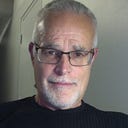Scientists as a group — no group — should not be given blanket trust. History is full of examples of the entire “scientific community” being wrong. A recent example is plate tectonics, which was completely rejected until a preponderance of evidence showed that it was happening — despite the claims of physicists that it was impossible. Another recent example: When Luis Alvarez proposed that a meteor wiped out the dinosaurs, he was dismissed by the entire paleontological community. Another case: when it was discovered that the expansion of the universe is accelerating. Before that, the entire astrophysics community believed that the expansion of the universe was slowing.
Scientists can be biased. When a scientist peer-reviews a paper that challenges the view that the reviewer has expressed in prior publications, will the reviewer be less likely to comment favorably on the paper? This tends to perpetuate the status quo and reinforce groupthink.
Scientists are human beings and are subject to all of the cognitive biases that humans have.
I myself was a climate change skeptic for a long time, because none of the articles in the media had answered questions that I had. Instead, I was dismissed as a “climate denier” — which I found to be unfair and nasty. My central question was around the fact that while the climate record for the past 100 years show warming, if one looks more broadly at the trends over the past million years, one sees a very different picture, and it looked like we were headed for an ice age. No one could explain that, until I was able to have an extended exchange with a climate scientist. He answered my questions. Now I believe.
But it is unfair to dismiss people who do not blindly accept the claims of scientists or any group. People should make their own decisions. If they feel they don’t know enough to decide, they should reserve judgment; but they should not blindly accept what others say, no matter which group it is. Groups can be wrong — even large groups of very smart people. Even today ideas that had been accepted about dark energy are being challenged — something that is very unexpected. It seems we know a-lot less than we thought.
